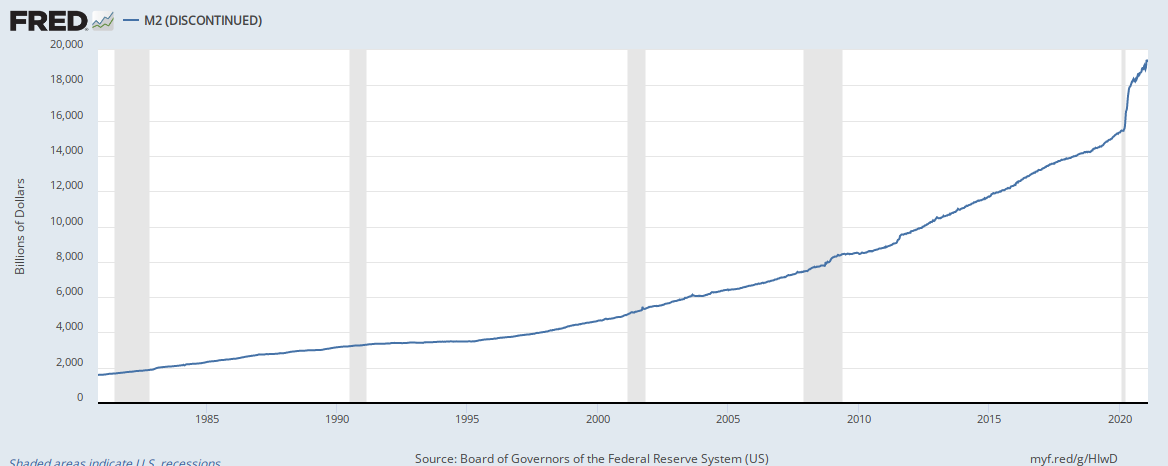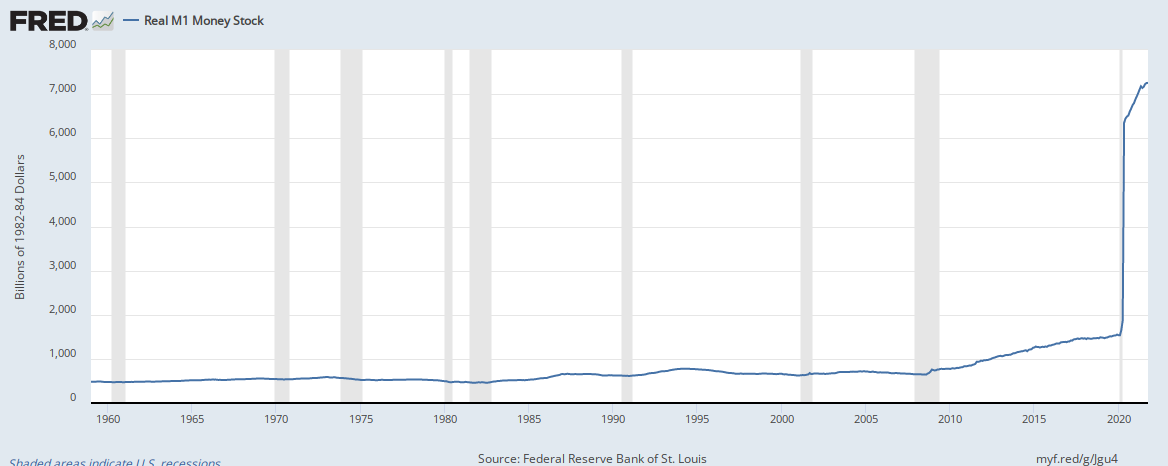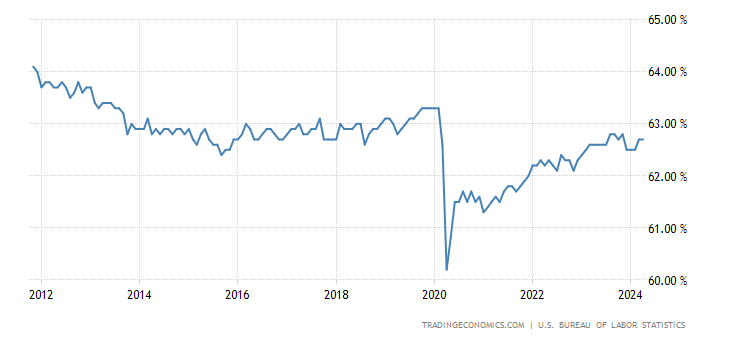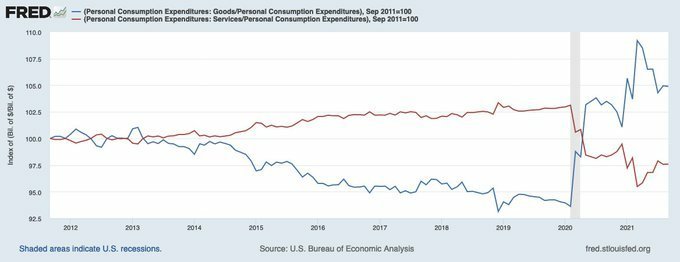IMO, there are many causes of our current inflation:
1. Government printing money which increases the money supply.
2. Labor shortages which forces employers to increase pay.
3. Supply shortages which forces buyers to bid the prices higher.
4. Low interest rates which means money is cheap which increases borrowing and the money supply.
5. QE which a central bank purchases longer-term securities from the open market in order to increase the money supply and encourage lending and investment. (QE as defined by investopedia)
6. Tax cuts and stimulus checks which increases the money supply while increases the national debt.
Reasons 1-6 appears to be happening now.
Note that I did not include an overheated economy simply because the latest increases in GDP is only 1.9% (3rd qtr 2021) according to:
https://www.statista.com/statistics...-from-preceding-period-in-real-gdp-in-the-us/
However, I have other concerns about inflation if inflation do get out of hand....
7. Public belief that prices are rising and causes panic buying. This causes a supply shortage.
8. High government debt which can affect the value of the dollar with respect to other currencies. If the value of the dollar decreases, everything foreign made will cost more.
7 and 8 are not happening now but may in the future.
Have I missed anything? Can other people chime in on the possible causes of inflation that is happening now?
There's a big one that I don't see listed there.
1) increased shipping costs
Also, I've heard some places are raising prices just because they think this is a good time to increase theirs while so much of everything is going up in price, so it's a good time to try to increase profits.




